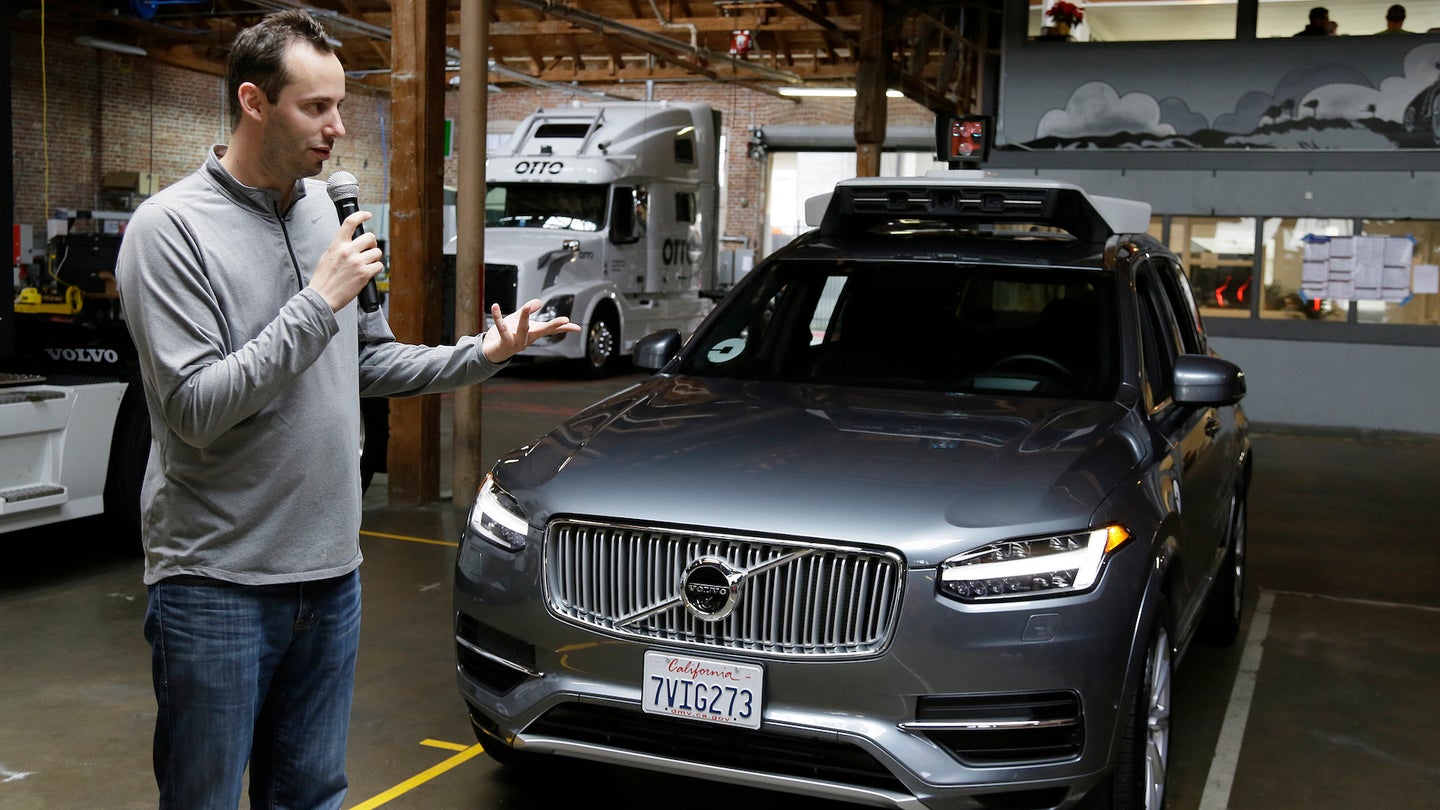Uber vs. Waymo Trial Over Self-Driving Car Tech Starts Today
The two rivals head to court after almost a year of legal wrangling.

After almost a year of legal maneuvering, the trial between Uber and Waymo over self-driving car tech starts today. The case centers on whether Uber used stolen Waymo trade secrets to improve its own autonomous-car program, and could decide the futures of two of autonomous driving's biggest players. Here's what you need to know.
Waymo, the former Google self-driving car project, filed its bombshell lawsuit against Uber in February 2017. The suit alleges that engineer Anthony Levandowski stole 14,000 computer files while he was an employee at Waymo, and eventually passed them on to Uber.
Levandowski left Waymo in late 2015 to form self-driving truck startup Otto with Lior Ron, another ex-Waymo employee. Uber bought Otto in August 2016, and Levandowski was brought on board to help lead Uber's self-driving car program. When Waymo filed its lawsuit, Levandowski exercised his Fifth Amendment right against self-incrimination. But because he refused to help fight the lawsuit, Uber eventually fired him.
The judge overseeing the case, William Alsup, has said Waymo must prove not only that Levandowski stole files, but that Uber actually used them in its own self-driving car program. Evidence presented so far hasn't cast Levandowski or Uber in the most flattering light, but it's still unclear if Waymo will be able to make a convincing case.
In October, Waymo successfully lobbied for the release of a due diligence report conducted ahead of Uber's acquisition of Otto. This was a key document because it showed what Uber executive might have known about the alleged trade-secret theft before bringing Levandowski onboard. The report said Levandowski began meeting with Uber officials while he was still a Waymo employee, and that investigators found what looked like Waymo documents on Levandowski's iPhone. But it didn't provide conclusive proof that Uber planned to use stolen documents.
Over the past year, Uber's self-driving car program has stagnated as the company has fought the lawsuit and a number of other scandals, which also triggered a management shakeup. CEO Travis Kalanick resigned in June and was replaced by former Expedia CEO Dara Khosrowshahi in September. Meanwhile, Waymo steadily expanded its self-driving car program, overtaking Uber in certain metrics.
Uber needs to win in court to get its self-driving car program back on track, while Waymo seeks vindication for what it believes is trade-secret theft. There's a lot at stake, as self-driving cars are expected to massively disrupt the auto industry, and potentially generate trillions of dollars in revenue in decades to come. The case could also have a broader impact on the tech industry, where employees tend to jump from one company to another frequently.
Faraday Future recently filed a suit against Evelozcity, an electric-car startup founded by one of its former executives. In China, Baidu is suing an autonomous-driving startup founded by a former employee. As in the Waymo vs. Uber case, both Faraday and Baidu allege that ex-employees took trade secrets with them on the way out the door. The trial between Waymo and Uber could set a precedent for how these types of cases are handled.
The lawsuit has also transformed Uber and Waymo from competitive rivals into bitter litigants. The two companies have been at each other's throats for a year, and that acrimony could continue after the verdict if the losing side decides to file an appeal. The case could become an indefinite distraction from Uber and Waymo's main goal: eliminating human drivers.
